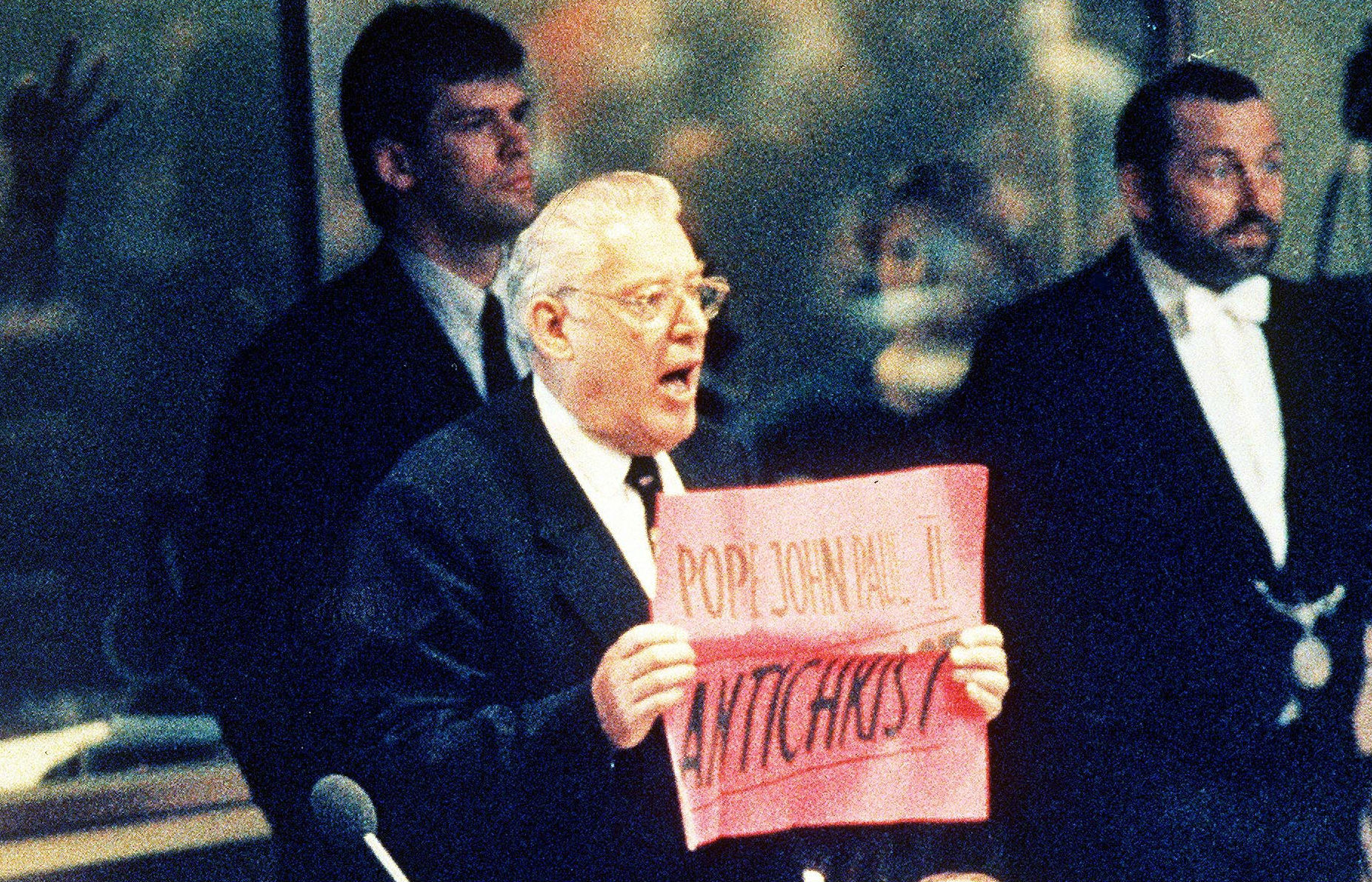A new form of religiously motivated violence termed “Islamist hyper-extremism” threatens to replace pluralism and diversity with a religious mono-culture, warns a new report.
The phenomenon, says Catholic charity, Aid to the Church in Need, who produced the report, is characterised by systematic attempts to drive out all dissenting groups, including moderates, along with unprecedented levels of cruelty, global reach and the effective use of social media, often to glamorise violence.
“In parts of the Middle East including Iraq and Syria this hyper-extremism is eliminating all forms of religious diversity and is threatening to do so in parts of Africa and the Asian sub-continent,” says the report, released on 24 November in British Parliament.
Having assessed the status of religious freedom across the world’s 196 countries over a two-year period, the report concludes that “a virulent and extremist form of Islam” is the greatest threat to religious freedom.
Of the 11 countries with worsening persecution, nine were under extreme pressure from Islamist violence (including Bangladesh, Indonesia, Kenya, Libya, Niger, Pakistan, Sudan, Tanzania and Yemen.) While of the 11 countries with consistent persecution, seven faced huge problems relating to Islamism (Afghanistan, Iraq, Nigeria, Palestinian Territories, Saudi Arabia, Somalia and Syria.)
An explosion in the number of refugees can be directly attributed to this “massive surge in violence and instability linked to Islamism,” says the report. At the end of 2015, there were an estimated 65.3 million refugees, says the report, citing UN figures. This is a nine per cent increase from the year before, the highest figure on record.
“Although economic factors played a major part, the countries which largely accounted for the increase in refugees were centres of religious extremism,” the report’s authors write.
“One key objective of the Islamist hyper-extremism is to trigger the complete elimination of religious communities from their ancient homelands, a process of induced mass-exodus,” it continues.
Yet growing religious intolerance is not only of Islamic origin, finds the report. In Europe, for instance, there has been an upsurge of anti-Semitic attacks, a trend that came to the world’s attention following attacks on a kosher restaurant in Paris two days after the killings at the office of the Charlie Hebdo satirical magazine in January 2015.
Australian Jews recorded 190 anti-Semitic incidents in 18 months between 2014 and 2015.
The ACN report also references a Buddhist monk, U Wirathu, from Myanmar who leads an anti-Muslim campaign, stoking anti-Muslim sentiments through his grassroots nationalist group known as the “969” campaign.
Two case studies detailing efforts to improve interfaith dialogue conclude the report. In Pakistan, Catholic priest Father Emmanuel Parvez has created an interfaith football tournament designed to tackle religious hatred by developing relations between Muslims and Christians.
In January 2016, a three-day conference held in Morocco saw Muslim scholars from 120 countries gather to publicly condemn Islamic extremists and terrorist militants and to call on Islamic authorities to protect citizens regardless of religious identity.
“In this day and age more than ever, it is time to cast aside religious hatred and personal interests and learn to love one another as our faiths call us to do,” writes Syria-Catholic Father Jacques Mourad in the foreword to the report.
Mourad, was kidnapped by ISIS in 2015 and held for 84 days concludes:
“If we are to break the cycle of violence threatening to engulf our world, we need to replace war with peace. ”
Picture: Iraqi Christians pray at the Church of the Immaculate Conception, damaged by Islamic State fighters during their occupation of Qaraqosh, east of Mosul, Iraq.




 Loading ...
Loading ...